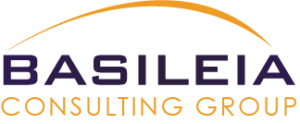Do you ever feel your organization is a suite of giant puzzles with overlapping pieces in different boxes?
Perhaps it is.
Hence the growing trend for companies to employ an Enterprise Resource Planning (ERP) solution to align departments, identify gaps, and eliminate redundancy.
So, what’s it all about?
The Evolution of ERP
When ERP was first employed, primarily in manufacturing, it was a tool for managing inventories and carrying out internal quality checks – nothing more, nothing less. Since that time, ERP has advanced significantly and has rapidly altered the business landscape.
Utilizing the computational power of robust machines might optimize production for speedy marketing and distribution of goods.
Today’s ERP systems comprise a complete software suite that offers businesses solutions for storing, organizing, and utilizing massive amounts of data in their everyday operations.
Numerous applications that combine customer and company data in a shared database readily available to system users enable this feature. As a result, it is now possible to source ERP software that easily interacts with your CRM system.
ERP (Enterprise Resource Planning) aids in automating and managing business processes in operations, supply chain management, manufacturing, and finance. ERP solutions eliminate data silos by combining data from several departments, assisting management in gaining insight, optimizing operations, and improving decision-making.

Instances of ERP in Various Business Sectors
ERP systems connect the various processes and departments throughout your organization, giving you a complete picture of your business. You can magnify your screen to get a close-up view of particular divisions or zoom out to see how the entire company is doing. With the aid of this single picture, you can anticipate problems, eliminate obstacles, and make the necessary adjustments to keep your business expanding.
ERP systems provide business intelligence, which is advantageous to many aspects of an organization. Here are a few instances of how clearly defined ERP systems streamline and improve typical business areas.
Finance
Profitability increases, mistakes are found and fixed, work is compliant, and business intelligence is elevated with a well-designed ERP.
Manufacturing
ERP systems provide a streamlined solution for manufacturing by speeding up product delivery and production. The advantages of ERP systems support the product from the manufacturer to the client and everything in between by tracking, scheduling, and optimizing product manufacturing and delivery.
Retail
ERP solutions offer a unified retail experience by fostering efficient and seamless operations. Both in-person and online sales are made more efficient by the central management of product information, inventory, customer promotions, and sales statistics.
Chain of supply
Drive supply chain optimization, increase visibility, and streamline it from sales through fulfillment. ERP systems support the optimization of logistics at manufacturing sites, warehouses, facilities, and transit hubs.
People resources
Human resource management solutions are frequently connected with ERP systems because they offer centralized data on a single platform. Enable employee success with solutions to maintain compliance, manage absences and leaves, provide ways to recruit and hire top people, and administer benefits.

Benefits and characteristics of ERP systems
ERP systems’ real-time visibility enhances decision-making, assists in spotting problems before they arise, and boosts overall productivity.
ERP systems enable you to enhance operational processes by combining data from numerous sources. You’ll be able to react swiftly to modifications in specifications or rules thanks to a 360-degree perspective of your business operations, keeping all systems globally compliant.
Here are some distinct advantages of fully specified ERP systems with an end-to-end perspective of your business:
Operations improvements
Utilize ERP systems’ automation, job prioritization, and data integration capabilities to gain more control over the separate parts of your business.
Aligned groups
You can boost business productivity by destroying data silos, enabling data sharing between divisions, and promoting cooperation.
Combined data
Keeping a centralized repository for data from all departments can eliminate duplication, reduce errors, and improve data accuracy.
Better ability to make decisions
Utilize real-time information about your organization to generate predicted insights and data-driven decisions.
Lower expenses
Reduce errors and find problems early on; business-wide knowledge boosts productivity and lowers expenses overall.

Choosing an ERP system for your enterprise
An ERP system has advantages for businesses of all sizes. If your software is preventing your company from growing, now is the time to choose a solution that will. Although there are numerous systems, knowing what to consider when selecting an ERP system for your business is crucial. These characteristics are beneficial to consider when choosing a well-organized, well-suited, and well-defined ERP system.
Capable of growth
Because of the current corporate world’s rapid pace, needs are continuously changing. Choose a system that will expand along with your business.
Accommodates your requirements
Use one app or several, with the option to modify, expand, and combine your solution with other systems used in the business.
Mobile-friendly and cloud-based
Find a solution that keeps your staff linked wherever they are, whether they are in the office or off-site.
Look for software that provides the most comprehensive view of your company. Connect all aspects of your organization with technologies like customer relationship management (CRM), enterprise resource planning (ERP), human resources, and others.
Pair up and trade
Invest in a system that provides a consistent experience and enables data sharing between many apps.
The Benefits of Microsoft Dynamics 365 Business Central
What are the main business benefits of Microsoft Dynamics 365 Business Central?
Below are the top 8 benefits to help you understand how a cloud version of ERP can transform your business.
- Low Cost of Ownership
- Offers a Single Source of Truth
- ERP Meets CRM in One Platform
- Warehouse and Supply Chain Management
- Flexible and Easy to Scale
- Simple Project Management
- Seamless Integrations
- Data Security and Compliance
Are you Ready to Take Your Business to the Next Level with a Cloud ERP Solution?
Contact Basileia Consulting Group (BCG) by calling 949-329-3524 or via our contact form so we can get acquainted and start you on the road to superior cloud ERP with Microsoft Dynamics 365.
Related Posts
Your Future and Your ERP Are in the Cloud
Looking for an Outstanding Microsoft Dynamics ERP Partner? Meet Basileia!
About the Author
Basileia Consulting Group assists other ERP software resellers and consultants with challenging implementations. To better ensure the successful adoption of ERP software across the entire company, we expanded the scope of our service offering eight years ago to include the complete suite of Microsoft business tools. We have established a name for ourselves in the industry as the people your software partner should contact whenever things go wrong.




